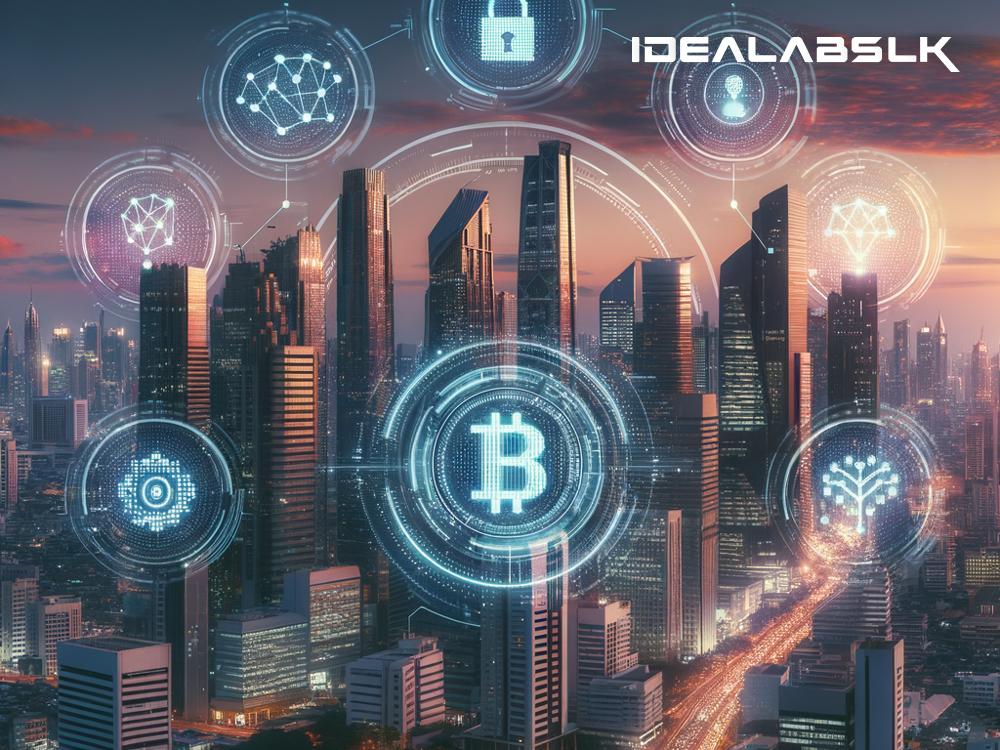Title: How Blockchain and AI are Changing the Game in Global Real Estate
The world of real estate, with its sprawling urban skylines and quaint countryside homes, is experiencing a revolution. This change is driven by two groundbreaking technologies: Blockchain and Artificial Intelligence (AI). These innovations are not just redefining how properties are bought, sold, and managed but are also making these processes more transparent, efficient, and accessible to people around the globe.
Let's break down these complex terms into something simpler.
Blockchain, in essence, is a digital ledger that securely records transactions across many computers. This means that once a record is added to the chain, it is very difficult to alter, making fraud nearly impossible. Imagine it as a book where every financial transaction in real estate – from the initial deposit to the final sale – is recorded line by line, and this book is held not just by one person, but is duplicated across thousands of computers.
AI, on the other hand, refers to computer systems designed to mimic human intelligence. These systems can learn from data, identify patterns, and make decisions. In real estate, AI could help predict market trends, automate repetitive tasks, and even enhance customer service by providing more personalized recommendations to buyers and sellers.
Now, let’s dive into how these technologies are transforming the global real estate markets:
1. Making Transactions More Transparent and Secure
Blockchain introduces a level of security and transparency that was previously unheard of. Every transaction is recorded on this digital ledger, visible to everyone but unchangeable without consensus. This means fraudulent activities like double-selling properties or altering records cannot easily occur. For international buyers, this transparency is especially crucial as it allows them to verify the legality and authenticity of properties without physical visits.
2. Streamlining Processes and Reducing Costs
The traditional process of buying a home is often lengthy and riddled with paperwork. Blockchain technology can streamline these processes by allowing all parties involved (buyers, sellers, agents, lawyers) to access the transaction records. This not only speeds up the buying process but can significantly reduce the associated costs by eliminating many intermediary fees.
3. Enhancing Data Analysis
AI excels in analyzing massive amounts of data to predict trends. In the real estate market, this means AI can help investors and buyers make better-informed decisions by evaluating factors like market prices, neighborhood growth, and investment risks. For sellers, AI-driven market analysis can suggest the best times to sell, ensuring they get the best possible deal.
4. Improving Property Management
For those owning rental properties, AI and blockchain offer innovative solutions for property management. Blockchain can be used for secure, automatic lease agreements, and transactions, including rent payments, deposits, and maintenance fees. AI can assist in predicting maintenance needs, automating tenant inquiries, and even optimizing rental prices based on market demand.
5. Enhancing Customer Experience
The integration of AI in real estate websites and apps has revolutionized how customers search for properties. AI algorithms personalize property suggestions based on user preferences, search history, and behavior. Virtual tours powered by AI can also offer a more interactive and detailed view of properties, making the buying process more engaging and informative.
The Future is Here
The fusion of blockchain and AI technologies is not a distant future; it's happening now. Countries and companies across the world are adopting these technologies to create a more efficient, transparent, and secure real estate market. From blockchain-powered property databases in Sweden to AI-driven investment platforms in the US, the impact of these technologies is global and growing.
Conclusion
In closing, blockchain and AI are not just buzzwords; they are powerful tools redefining the real estate landscape. Their ability to improve transparency, enhance security, streamline operations, and provide in-depth market insights is truly revolutionary. As these technologies continue to evolve and integrate with the real estate sector, they promise to make the market more accessible and equitable, breaking down barriers and opening doors for buyers, sellers, and investors worldwide.
The real estate revolution powered by blockchain and AI is just beginning, and it's set to change the way we think about buying, selling, and managing property in the global marketplace.

